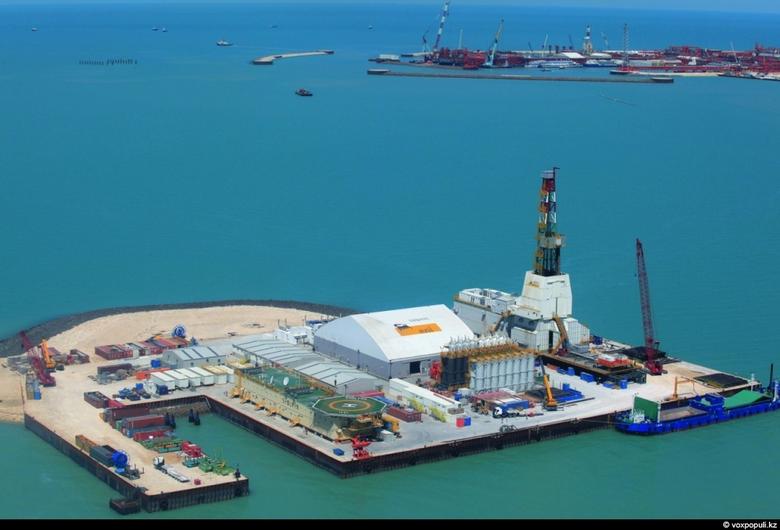
KAZAKHSTAN: $50 B PROJECT

Kazakhstan has signed a deal with the oil companies developing the huge Kashagan oilfield in the Caspian Sea that paves the way for their contract to be extended, in a key victory for the western partners behind the $50bn project.
A person familiar with Kashagan said the Kazakh government had agreed that each time the consortium sanctions a new phase of the project it will be awarded an extension.
"This has given a lot of confidence to the joint venture," the person said.
The largest oilfield outside the Middle East, Kashagan symbolises the enormous resource wealth of Kazakhstan, a Caspian state with ambitions to become one of the world's major oil exporters.
But the project, which has turned out to be one of the most technically challenging in the global oil industry, is billions of dollars over-budget and way behind schedule. It was supposed to start pumping oil in 2005 but is now not expected to come on line until late next year at the earliest.
The current production sharing contract for Kashagan expires in 2041, but the constant delays mean companies in the consortium will have much less time to recover their costs than initially anticipated. For that reason, the partners have been keen to win an extension.
The person close to the project said the contract could be extended once the consortium decides to move ahead with a new phase, known as CC01, which is likely to be sanctioned in 2016. This will involve gas being reinjected into the reservoir to improve oil recovery and take production up to 450,000 b/d.
It could be extended again when the companies move on to the next phase, which will see production rise to between 900,000 b/d and 1.2m b/d, the person said. In each case, the fiscal terms of the contract will be preserved intact.
Kashagan briefly started producing oil in September last year, but shut down a few weeks later due to a leak in a gas pipeline connecting the oilfield to the shore. An investigation revealed "sulphide stress cracking", a form of corrosion caused by hydrogen sulphide, high levels of which are contained in Kashagan's oil.
In April, the Kashagan operating company said both the gas pipeline and a parallel line carrying oil to the shore would need to be fully replaced.
Kashagan is now not expected to produce any oil in 2014, and only a little in 2015, while in 2016 output should ramp up to 350,000 barrels a day.
Most consortium members acknowledge privately that the original plan to take output to 1.5m b/d is unlikely to be realised.
The problems at Kashagan have angered Kazakhstan's government, which had been counting on the field to catapult the country into the big league of oil producers and to substantially lift government revenues.
President Nursultan Nazarbayev made a rare public mention of the project this week when he "expressed concern" about Kashagan at a meeting with Claudio Descalzi, chief executive of ENI, according to his press service.
In recent weeks, the Kazakh oil ministry has sharply lowered its expectations for the country's long-term production. Uzakbai Karabalin, the Kazakh oil minister, told journalists that the ministry now expected output of 112m tonnes (2.2m b/d) in 2030.
Just last September, Mr Karabalin had said that 110m tonnes in 2030 marked a "pessimistic scenario" for Kazakh production, and that it could be as much as 180m tonnes. Last year, the country produced 81.8m tonnes.
The Kashagan partners will present their plan for replacing the faulty pipelines to the Kazakh government, with details of costs and timing, by the end of this month. They are expected to award a contract for the new pipes by the end of September, with the first of them being supplied by the first quarter of next year.
ft.com





